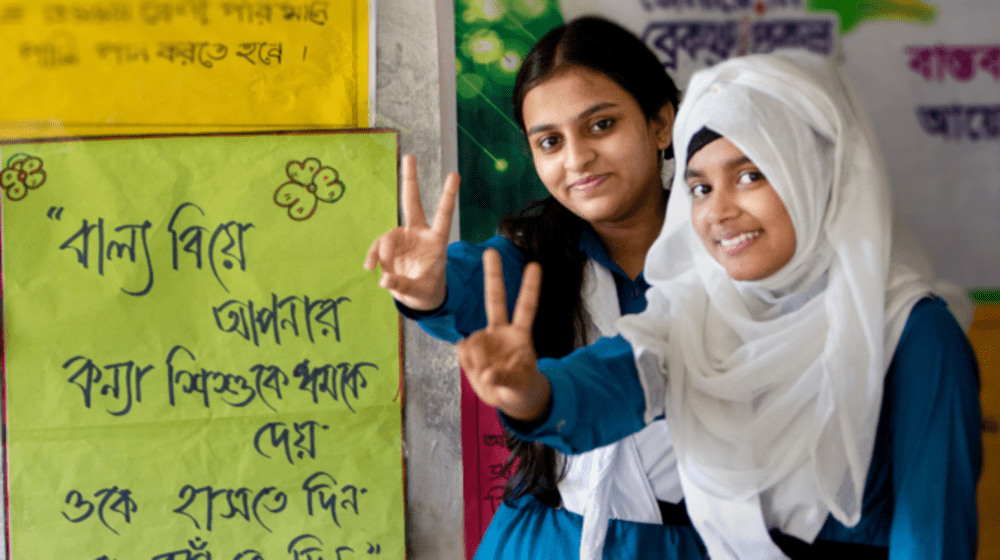After attending UNFPA’s life skills education classes, 18-year old Tahiya felt empowered to stop the marriage of her best friend
One day in Iqbalpur High School, Jamalpur District, Tahiya found her best friend Shila sitting alone at the corner of the classroom, looking gloomier than ever before. Concerned by the sad demeanor of her typically cheerful friend, Tahiya immediately asked what had happened.
“I want to continue studying and make something out of myself, but it won’t happen anymore. My parents are arranging my marriage,” Shila responded with tears on her face.
Like millions of other workers in Bangladesh, Shila’s tfather who works as a tailor had seen his income greatly reduced by the COVID-19 pandemic. After expenses for Shila’s education had become unbearable for the family, Shila’s father had made the decision to marry her off.
Knowing Shila to be one of the best students in her class, Tahiya could not bear the thought of her having to quit her education. Tahiya had learned had about the harms of child marriage after attending life skills education sessions of UNFPA’s Generation Breakthrough project in a local adolescents’ center. She knew she had to act quickly to save her best friend’s future.
Tahiya went to the school’s headmaster and informed her about the danger Shila was facing. The headmaster took the matter seriously, and with some other teachers and a local ward counsellor, immediately went to Shila’s home to meet her family. Together, they discussed the harmful consequences of child marriage and convinced Shila’s parents that the marriage was not a good idea. To help Shila’s family with their financial struggles, the school also promised to bear Shila’s educational expenses for now. The marriage had been successfully prevented!
‘I am so happy that I was able to stop a child marriage of my best friend. As young girls, we have to be aware of our rights so that no parent will be able marry us before we turn 18. If we girls support each more, I know we can reduce the rate of child marriage in our communities.,” Tahiya stated after the marriage had been officially cancelled.
Despite being a punishable offence by law, Bangladesh continues to have the highest rate of child marriage in all of Asia. The prevalence of the practice does not only violate the rights of millions of girls, but significantly hinders the country’s social and economic development. There are indicators that the rate of child marriage has further increased as families struggle to cope with the economic shocks caused by the COVID-19 pandemic.
Together with the Government of Bangladesh and its other partners, UNFPA continues to strengthen the capacity of legal authorities to prevent child marriages and conduct awareness raising sessions in communities across the country to ensure no girl in Bangladesh has to face the same fate that Shila almost experienced.


